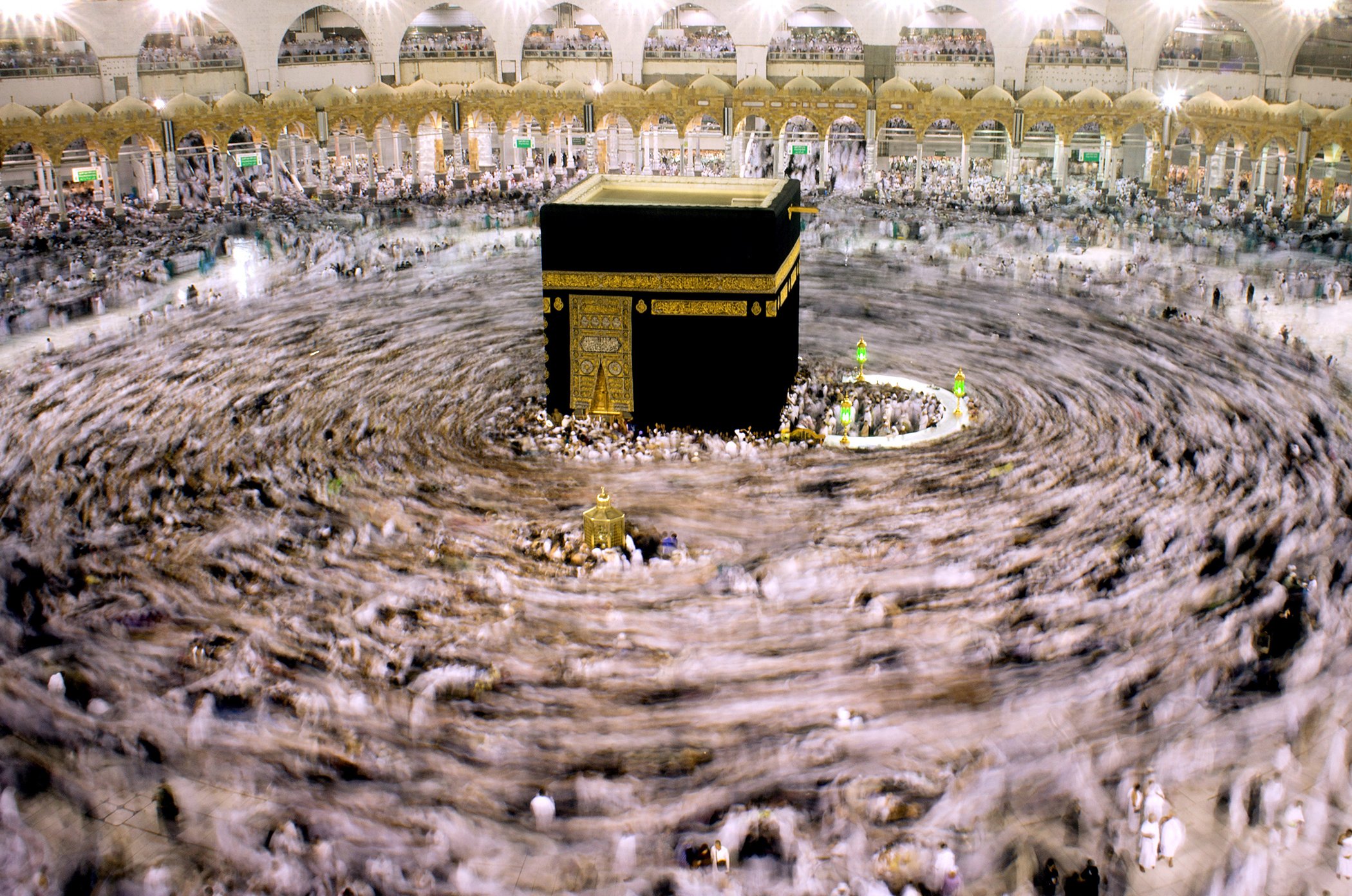Ramadan, one of the holiest months in Islam, is here, and Muslims around the world will be fasting during daylight hours for 29 or 30 days straight. I’m sure you have already heard the expression “from dawn till dusk.” Maybe you’ve even heard the word “Eid” thrown around here and there and have no idea what it means, or what you should or shouldn’t do — is it rude to eat in front of them?
During Ramadan, you should be considerate and earn some serious credit among friends for your knowledge of everything. You might be confused when it comes to terminology and etiquette, so here are seven tips to keep you in the know.
1. Greet us this Ramadan. Don’t be shy.
You can say “Ramadan Mubarak” or “Ramadan Kareem.” They basically mean the same thing. Mubarak means “blessed” and Kareem “generous,” as in “May Ramadan be generous to you.” It’s almost like saying merry Christmas or happy Christmas.
If you feel a little iffy on the Arabic, “Happy Ramadan” is just as good as any greeting you could give. I know your Muslim brothers and sisters would appreciate it.
2. Don’t worry. You can eat in front of us.
If you want to ask if we mind, to make yourself feel better, go right ahead, but it’s not a big deal. Although we might not eat or drink all day long and look hapless at the table, we don’t care and hardly notice you chowing down, so carry on as normal.
We don’t mind going out for lunch either, so ask us to hang out. But, if we do take a pass, don’t be surprised or hurt — it could be a long day. Also, when our stomachs growl, please ignore them. They’re just testing out all that extra room and being extra loud at times to purposely embarrass us — or at least me.
3. Fasting is universal.
Muslims don’t own the copyrights to fasting — many religions practice it — so you can fast alongside us if you want to. It doesn’t hurt our feelings if you do or you don’t, but please don’t think that you’ll lose weight. It’s different for everyone.
Although the purpose of Ramadan is to practice self-discipline and cleanse the mind, body and soul, some people actually gain weight during Ramadan due to overeating, eating the wrong foods or not getting enough physical activity to burn off those calories. The key is not to change your typical caloric intake, eat slowly and eat slow-release energy foods instead of heavy, indulgent sweets and fried goods.
4. Join us for iftar. But what’s an iftar?
Iftar is simply the dinner we have when breaking our fast at sunset. You’ll notice people breaking their fast with dates and/or water, but it can be broken with any food or beverage (except alcohol, because alcohol is forbidden in Islam).
Iftar is meant to be a communal meal, where the more people the better. Many times, you might hear about people hosting iftar. This is just like hosting a mixer; there’s food and plenty of people around — fasters and non-fasters alike — ready to eat, pray and talk (there is such thing as those who are unable to fast, or those who just don’t do it). All are welcome to iftar.
5. Suhoor, a pre-dawn breakfast. Seriously.
You may hear Muslims mention suhoor, our breakfast before the fast begins at dawn. Some Muslims prefer to drink water as opposed to having a meal, and even then, not all Muslims get up for suhoor, even though it’s good to, because the Prophet Muhammad (PBUH) did so.
While iftar is something every fasting Muslim participates in (and they should break their fast as soon as the sun sets), suhoor is optional, but many families and cultures make it a common practice.
6. Eid
Eid is a holiday, and there are two Eids in Islam. One follows directly after Ramadan, on the first day of the following month, Shawwal. This holiday is known as Eid al-Fitr. The second Eid falls on the second day of Hajj (the pilgrimage to Mecca), called Eid al-Adha, which takes place about three months after Ramadan.
Because the Islamic calendar is lunar, Ramadan and Eid don’t start or end as clearly as Christmas. It all depends on the new moon, which has to be physically seen. Therefore, the dates jump around from year to year and might even differ between countries.
If you want to wish a Muslim a happy holiday, though, you can say “Eid Mubarak” or just “Happy Eid.” Although Eid is a celebratory occasion, it’s also a day of prayer, hope, community and giving.
7. Tara-what?
You might not have heard of it, but it’s a special prayer practiced during Ramadan consisting of 20 cycles (rakat, in Arabic) of prayer. Although not all Muslims perform this prayer, many do. They can spend hours completing it — or a half-hour — just as some may spend hours reading the Quran.
So, if a friend chooses to stay home at some time this month, or to go to the Masjid instead of to the movies, it’s safe to assume they are spending time in worship and meditation. The thing about Ramadan, and Eid, is that prayer and self-reflection are central parts of what these days are about.
















